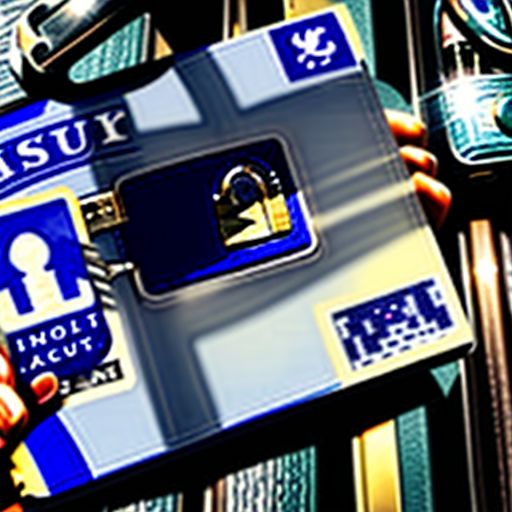Imagine this: you’re scrolling through your credit card statement online and something seems off. There’s a purchase you don’t recognize. Panic sets in as you realize you might be a victim of identity theft. Protecting your Social Security number (SSN) is crucial to preventing situations like this and safeguarding your financial future.
Understanding the Importance of Your SSN
Your Social Security number is more than just a random nine-digit number. It’s a key identifier used by the government and many other institutions to track your earnings, pay benefits, and verify your identity.
Why is Protecting Your SSN Critical?
- Identity Theft: Criminals can use your SSN to open credit card accounts, take out loans, access your bank accounts, or even file taxes in your name.
- Financial Ruin: Recovering from identity theft can be a long and arduous process. You could face damaged credit, financial losses, and endless paperwork.
- Privacy Violation: Your SSN holds sensitive personal information. Keeping it secure helps protect your overall privacy.
security.thegioinguhanh.com/wp-content/uploads/2024/07/protect-ssn-669399.jpg" alt="Protecting SSN" width="512" height="512">Protecting SSN
Effective Strategies to Protect Your Social Security Number
1. Minimize Physical Exposure
- Don’t Carry Your Card: Keep your Social Security card in a safe place at home, not in your wallet or purse.
- Be Cautious About Sharing: Only provide your SSN when absolutely necessary, such as for employment, tax purposes, or financial transactions.
- Secure Documents: Shred any documents containing your SSN before discarding them.
2. Strengthen Your Online Guard
- Beware of Phishing Scams: Be wary of suspicious emails, phone calls, or text messages requesting your SSN. Legitimate organizations will not ask for this information through these channels.
- Strong Passwords and Two-Factor Authentication: Use strong, unique passwords for all your online accounts, especially those containing financial information. Enable two-factor authentication whenever possible.
- Secure Websites: Only provide your SSN on websites that are secure (look for “https” in the URL and a lock icon in the browser bar).
3. Monitor Your Information
- Check Your Credit Reports: Regularly review your credit reports from all three major credit bureaus (Equifax, Experian, and TransUnion) for any suspicious activity.
- Review Bank and Credit Card Statements: Carefully scrutinize your statements for any unauthorized transactions. Report any discrepancies immediately.
- Be Aware of Data Breaches: Stay informed about data breaches that may have exposed your personal information. Consider placing a fraud alert or credit freeze on your credit files if necessary.
FAQs About Social Security Number Protection
When Should I Provide My SSN?
Only provide your SSN when absolutely necessary, such as for:
- Employers
- Financial institutions
- Government agencies (e.g., IRS, Social Security Administration)
- Healthcare providers (sometimes)
If you’re unsure, ask why your SSN is needed and how it will be protected.
What Should I Do if I Think My SSN Has Been Compromised?
- Report it: Contact the IRS, Social Security Administration, and the Federal Trade Commission (FTC).
- Place a Fraud Alert or Credit Freeze: This makes it harder for identity thieves to open new accounts in your name.
- Monitor Your Accounts: Keep a close eye on your bank, credit card, and other financial accounts for suspicious activity.
Conclusion
Protecting your Social Security number is essential for safeguarding your identity and financial well-being. By being vigilant, adopting safe practices, and staying informed, you can significantly reduce the risk of becoming a victim of identity theft. If you have any further questions or concerns, don’t hesitate to reach out to us or consult with a trusted financial advisor.
